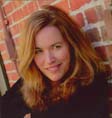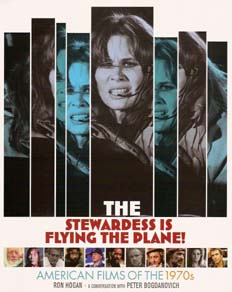
February 24, 2005
Author2Author, Elizabeth McKenzie and Curtis Sittenfeld, pt. 3
(It's time for the last round in the email exchange between Lisa and Curtis, and though we won't be throwing a pizza party, I hope you've enjoyed the earlier episodes from the conversation...More Author2Author dialogues are in the works for the near future.)
Elizabeth McKenzie: Do you write short stories anymore?
Curtis Sittenfeld: I do still write short stories, and I have a lot of ideas for stories I want to write. Your response to my novel-in-stories question is especially interesting to me because something similar has happened to me, where I thought I was writing stories and a woman in my writing group pointed out that they all had basically the same main character, so now I am more consciously focusing on her and seeing what it turns into. Although it's easier to get a novel than a story collection published, I don't see the novel as an inherently superior form. I like the compactness and intensity of stories, where you can depict an episode that's somehow compelling without forcing yourself to draw it out. My all-time favorite writer, not that this is a very original choice, is Alice Munro, and she writes only short stories.
Last question: Do you think you have left Ann Ransom behind forever? The nature of the novel in stories seems to invite re-entry, on the author's part, at any point. Also, how did you know when you were finished, or how'd you know how far into adulthood you wanted to take Ann?
Elizabeth McKenzie:Even when writing new characters we're usually just creating new vessels for our preoccupations, so chances are, someone like her will appear again. As far as how far I wanted to take Ann Ransom, it felt instinctively suitable to leave her at a precipice, a juncture. There were a number of points like that in her story, but there was a certain roundedness in bringing the character to the final conversation in the book. Just felt like the place to stop.
February 23, 2005
Author2Author: Elizabeth McKenzie & Curtis Sittenfeld, pt. 2
(Curtis and Elizabeth continue to discuss issues of content and technique in their e-mail dialogue...)
Elizabeth McKenzie: Are there any scenes or sections in your novel that you particularly enjoyed writing? Something you like that has yet to be noticed by any readers?
Curtis Sittenfeld: This isn't one overlooked scene or paragraph, but something that has surprised me in reviews is that several critics have made comments along the lines of, "Prep is surprisingly interesting for a book in which nothing happens." And I've thought, Nothing? Nothing?! Everything happens! While I was writing it, I literally was worried that the main character, Lee, found herself in the thick of so many situations that she would seem like a sort of Forrest Gump--improbably omnipresent. I guess what's at issue is whether or not you think walking past your crush in the dining hall counts as drama--clearly, I do. But of course I'm also a person who can sit at my desk for ten hours, alone in my apartment, and then feel like I had a really hectic day.Another question for you is: How did you decide on a novel in stories? What advantages and drawbacks does this form have over a novel or a story collection? Did you know when you started writing that this is what it would be? Do you foresee writing future books in this form? (I guess this is actually four questions!)
Elizabeth McKenzie: Yes, I know what you mean (about what counts as drama).As for Stop That Girl, it started out as a collection--but four of those stories were about one character and her family (actually, they all had different names, but it was clear they were the same person), and the editors were interested in seeing where that might go. They asked if I wanted to take another six months and see what happened, and this sounded good to me. I ended up writing five new stories. Once we took a look at the thing, saw that the overall effect was novel-like, it received its hybrid designation.
The advantages for me were that conceiving of the material in story form really helped me distill it. And there was something interesting about touching down on on key moments or episodes without filling everything in. I was just reading Bob Dylan's Chronicles and he was talking about how you fill in a lot when listening to a song, how the lines jump but somehow there's an intuitive connection going on in the mind of the listener. That made sense to me in terms of the novel in stories, too. I'm not sure I'd ever write another book in this form, but I actually really like the possibilities it creates, how stories can unite in unexpected ways.
February 22, 2005
Author2Author: Elizabeth McKenzie & Curtis Sittenfeld, pt. 1
By now, Curtis Sittenfeld probably needs no introduction, as Prep has become one of the most talked about books of the season. Elizabeth McKenzie's Stop That Girl just came out last week, so reviews for the debut "novel-in-stories" are mostly still being written, but McKenzie's already seen her work appear in The Best American Nonrequired Reading and heard it read on Selected Shorts. Since they share a publisher, it was relatively easy to arrange an email exchange between them...
 Elizabeth McKenzie: Prep feels like it came into the world fully formed. But did you take any wrong turns along the way? Characters you introduced then cut, plot developments that later felt wrong? When something comes out well in the end, dead ends and false starts are reassuring to hear about.
Elizabeth McKenzie: Prep feels like it came into the world fully formed. But did you take any wrong turns along the way? Characters you introduced then cut, plot developments that later felt wrong? When something comes out well in the end, dead ends and false starts are reassuring to hear about.
Curtis Sittenfeld: I actually feel like I wrote Prep in the most complicated and inefficient way possible. I started by writing a 35-page version of the last chapter, which in the book is 118 pages, and is even longer in manuscript form. But the truly idiotic thing I did--and I did this knowing I would later undo it--was write a huge messy section that cut back and forth between parts of Chapter 3 and parts of Chapter 8. I was getting my MFA then and taking a novella workshop, and I thought, Well, here's a novella! I later spent a lot of time taking the two sections apart, filling gaps, and tweaking timing and sequence.
On the one hand, I know I made things unnecessarily hard for myself by writing the book out of order. On the other hand, I probably would have been intimidated by the idea of embarking on a four-hundred-plus page book from the beginning and writing straight through. By dipping in and out, I kind of tricked myself and was able to pretend the project wasn't as large as it turned out to be.
My question for you is more character-focused: Your main character, Ann, has a complicated relationship with her mother, and her mother has an even more complicated relationship with her mother. Do you see these characters more as products of their upbringing or as agents of their own behavior? If they make unwise choices or act in less than exemplary ways (and, of course, who doesn't?), can they help it?
Elizabeth McKenzie: I can see why you would be interested in this, seeing as your character Lee attempts to define herself in contrast to her family for much of your book. It's really an unanswerable question I think. Our natural impulses seem to be crushed under heavy layers of training and expectation.As a point of comparison, Lee engineers her experiences to some extent--by sending herself away to school. My character Ann on the other hand is caught in a struggle against what her family imposes on her. Yet Lee wonders at some point whether or not she has made a mistake by leaving home, while Ann who has not taken that route is ready to bolt at the first opportunity. Not only can we not escape our legacies, we're not sure we necessarily should.
photos: McKenzie by Gene Higa; Sittenfeld by Shauna Seily
